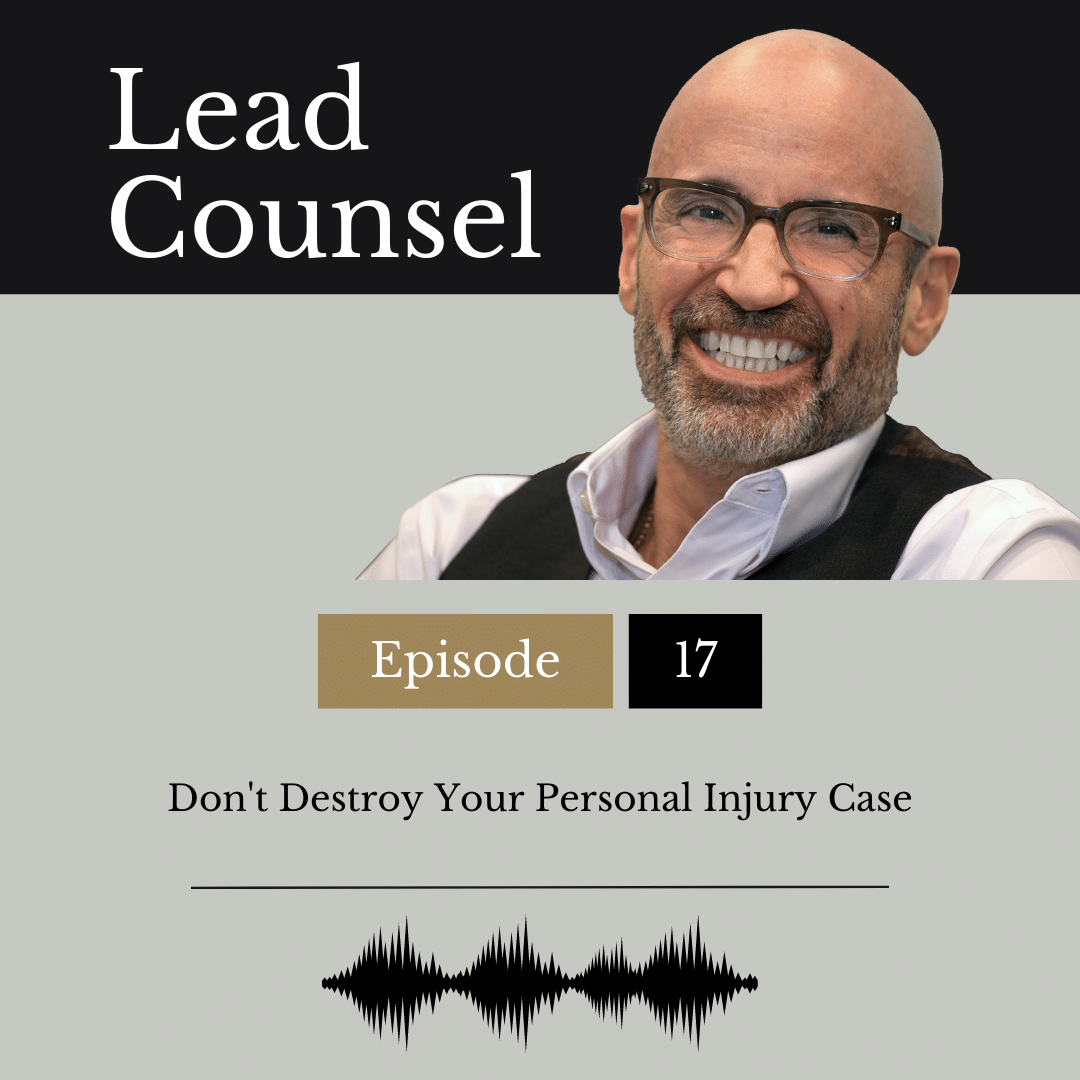Join us as we unpack crucial insights on personal injury claims in our latest episode. We bring you in-depth knowledge on how to navigate the complicated terrain of personal injury law. Learn how to understand the basics of a personal injury case, from the evaluation process to the importance of gathering all necessary documentation. We’ll also guide you on what not to do post-incident and common pitfalls to avoid.
Listen in as we offer an abundance of practical tips that can significantly impact the outcome of your case. By understanding the role of insurance companies and the need for comprehensive evidence, you can better protect your rights and interests. This episode is essential listening for anyone involved in or potentially facing a personal injury case.
Join us for an informative and insightful conversation that will arm you with the knowledge you need.
- The basics of a personal injury case and the evaluation process by law firms.
- Importance of gathering all necessary documentation and photographs and speaking to witnesses post-incident.
- Risks of speaking to insurance companies or posting on social media before consulting with an attorney.
- Why it’s crucial to continue medical treatment for your injuries and follow doctor’s recommendations.
- Common pitfalls like signing documents presented by insurance companies and trying to handle the case yourself.
- The benefits of hiring an attorney to navigate through the complex world of personal injury claims.
- The dangers of missing deadlines in personal injury cases and the importance of understanding all aspects of the case.
We’d love for you to follow us if you haven’t yet. Click that purple ‘+’ in the top right corner of your Apple Podcasts app. We’d love it even more if you could drop a review or 5-star rating over on Apple Podcasts. Simply select “Ratings and Reviews” and “Write a Review” then a quick line with your favorite part of the episode. It only takes a second and it helps spread the word about the podcast.
The information provided is for general informational purposes only and is not a substitute
for professional legal advice based on your individual circumstances.
Laws change frequently and may change before or after the release of any specific podcast episode, therefore Thomas Tona cannot warrant that all representations are correct. You should always consult with an attorney directly before
making legal decisions concerning your own unique legal issues. The offer
of the information in this program does not create an attorney/client
relationship. An attorney/client relationship can only be
formed by executing a written contract with Thomas Tona or his firm that
is signed by the client and a representative of the firm. This podcast may be
considered attorney advertising.
Personal injury claims can be a complex and intimidating process. From understanding your rights to dealing with insurance companies, there are numerous factors to consider. In this blog post, we aim to equip you with practical tips that can drastically alter the outcome of your case.
In any personal injury case, it’s crucial to understand the basics and the evaluation process for a personal injury law firm. There are three main factors that we evaluate: liability (who did what wrong?), damages (what are your injuries?), and insurance (what is the insurance coverage?).
In the immediate aftermath of an accident, it’s crucial to gather all necessary documentation. This includes police reports, hospital records, and any other relevant medical records. Taking photographs of the scene and your injuries can also be very helpful.
When handling a personal injury case, it’s important to be cautious about your actions. One common mistake is speaking to insurance companies before consulting with an attorney. Insurance companies are not on your side and may use your words against you.
It’s also critical to continue treating your injuries and follow your doctor’s recommendations. Your medical records are key evidence in your case. If you stop treating, it can be hard to prove that you’re still suffering from your injuries.
Signing documents presented by insurance companies is another common pitfall. These documents often have legal implications that can drastically reduce your payout or even waive your rights to future benefits.
Finally, handling a case yourself may not be the best idea. An experienced attorney understands the ins and outs of personal injury law and can help you navigate the complex process.
In dealing with personal injury cases, honesty is always the best policy. It’s crucial to be honest about your case, any prior injuries, and your medical treatment. Exaggerating or lying about your case can only harm you in the long run.
It’s also essential to preserve all evidence and keep a detailed log of your life after the accident. This can include every medical treatment you go to, every time you have a sleepless night due to pain, and even issues within your marriage caused by the accident.
Personal injury cases often come with numerous deadlines. Filing of a no-fault application, submission of medical bills, and filing of a lawsuit all have strict deadlines. Missing these deadlines can result in losing certain benefits and rights or even a full recovery.
Working with a law firm that specializes in personal injury cases can ensure you don’t miss these deadlines. We can take care of all the legal work while you focus on getting better.
Navigating through the complex world of personal injury claims can be daunting. However, with the right information and legal help, you can protect your rights and interests. Remember, it’s essential to consult with an attorney before making any decisions related to your case. It’s our job to handle the stress and fight for your rights so that you can focus on recovery.











